Search
Did you mean: Horace?
Search Results
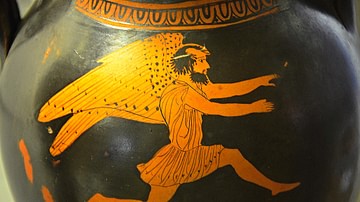
Definition
Boreas
Boreas is the god of the violent North Wind in Greek mythology. He is the son of the Titan Astraeus and Eos, the goddess of the dawn, and brother to Zephyrus (the West Wind) and Notus (the South Wind). He is best known for his bad temper...

Definition
Cimon
Cimon (c. 510 – 450 BCE) was an Athenian statesman and, as strategos, frequent commander of the Athenian fleet when the city was at the height of its power. He won military glory by defeating Spartan rival Pausanias and then the Persians...
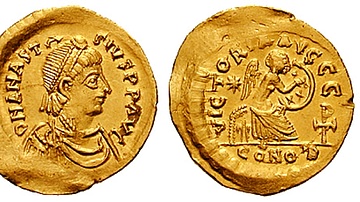
Definition
Anastasios I
Anastasios I ruled the Byzantine empire from 491 to 518 CE. Although his tax and monetary reforms were both popular and successful, the emperor could not repair the damaging split in the Christian Church created by his predecessors. He faced...
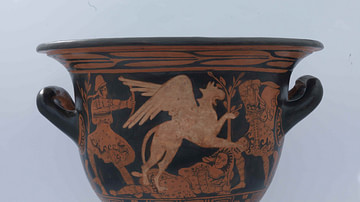
Image
Red-figure Bell Krater with Griffin
A red-figure bell krater showing a griffin or gryphon attacking Amazons. First half of 4th century BCE.
Vassil Bojkov Collection.
Photographer: Marin Karavelov for the Thrace Foundation

Article
The Delian League, Part 1: Origins Down to the Battle of Eurymedon (480/79-465/4 BCE)
This text is part of an article series on the Delian League. The modern term Delian League refers to the primarily maritime συμμᾰχία or symmachy (offensive-defensive alliance) among various Greek poleis, which emerged after the second Mede...

Article
The Delian League, Part 2: From Eurymedon to the Thirty Years Peace (465/4-445/4 BCE)
This text is part of an article series on the Delian League. The second phase of the Delian League's operations begins with the Hellenic victory over Mede forces at Eurymedon and ends with the Thirty Years Peace between Athens and Sparta...

Article
The Delian League, Part 3: From the Thirty Years Peace to the Start of the Ten Years War (445/4–431/0 BCE)
This text is part of an article series on the Delian League. The third phase of the Delian League begins with the Thirty Years Peace between Athens and Sparta and ends with the start of the Ten Years War (445/4 – 431/0 BCE). The First Peloponnesian...
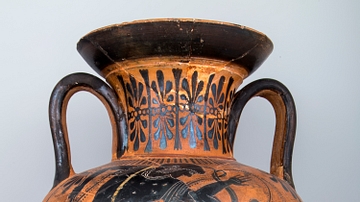
Image
Attic Black-Figure Amphora with Theseus
An Attic black-figure amphora with a scene showing Theseus and Procrustes, circa 480 BCE. (National Historical Museum - Sofia)
Photography: Archaeological Museum, Plovdiv, Bulgaria (used with permission)
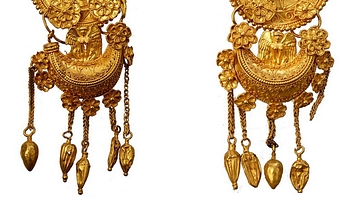
Image
Hellenistic Gold Earrings
A pair of Hellenistic gold earrings, 4th century BCE. Found in tomb II of Mogilanska Mogila tumulus at Vratsa. (Regional Historical Museum, Vratsa, Bulgaria)
Photography: Regional Historical Museum, Vratsa, Bulgaria.

Image
Painted Burial Chamber, Haskovo
A detail of a painted dromos and dome camera from a tumulus near Aleksandrovo village, Haskovo district, Bulgaria. The dromos has battle scenes while the burial chamber has a hunting scene, unfolded in a circle, and in the lower register...